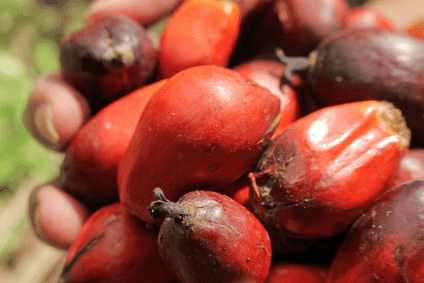
Indonesia has reportedly asked some retailers to remove products labelled palm oil-free in a country considered the world’s largest producer of the commodity used in an array of consumer goods, including food products.
Reuters quoted Ojak Simon Manurung, the director of goods and services circulation supervision at the trade ministry, as saying the ministry had conducted inspections at over a dozen supermarkets in Jakarta in the past few days.

Discover B2B Marketing That Performs
Combine business intelligence and editorial excellence to reach engaged professionals across 36 leading media platforms.
Goods carrying palm oil-free labels on packaging, mostly locally-made foods and snacks, were removed from display, Manurung told reporters.
He said the ministry conducted the inspection after the country’s Drug and Food Control Agency (BPOM) said palm oil-free labelling does not meet its criteria, although he did not elaborate on what such criteria is, according to Reuters.
“We followed it up by making sure that there are no more products that have ‘palm oil-free’ labels,” Manurung said. “BPOM has advised these products should not be distributed and the labels fixed.”
The move by Indonesia comes amid criticism that consumer goods firms are not doing enough to end deforestation, with palm oil one of the commodities in question. But Indonesia no doubt wants to protect the revenues it generates from cultivating palm oil, along with the myriad of workers engaged in the industry.

US Tariffs are shifting - will you react or anticipate?
Don’t let policy changes catch you off guard. Stay proactive with real-time data and expert analysis.
By GlobalDataIn March, a palm-oil producing unit of Indonesia’s largest food company, Indofood, was evicted from the Roundtable of Sustainable Palm Oil (RSPO) certification scheme after failing to comply with an action plan to remedy code of conduct violations.
RSPO said PT Salim Ivomas Pratama, the fourth-largest palm-oil producer in its membership network and owned by Indofood, was kicked off the scheme after failing to address more than 20 violations of its principles and criteria, as well as ten violations of local labour laws associated with the parent company’s oil-palm facilities.
Indonesia itself had previously withdrawn from the RSPO.
Meanwhile, BPOM said in a statement on Wednesday (21 August) that it will not approve for distribution products with palm oil-free labels, saying that palm oil is “safe” and the labels are reducing the commodity’s competitiveness, Reuters reported.
The news agency went on to quote Tutum Rahanta, the deputy chairman of Indonesia’s retailer association (Aprindo), as saying retailers would cooperate with authorities.
“If the aim of the labels was to discredit [palm oil], I think it’s fair for Indonesia to protect its main product with its own rules,” he told Reuters. “We as retailers will follow the rules.”





